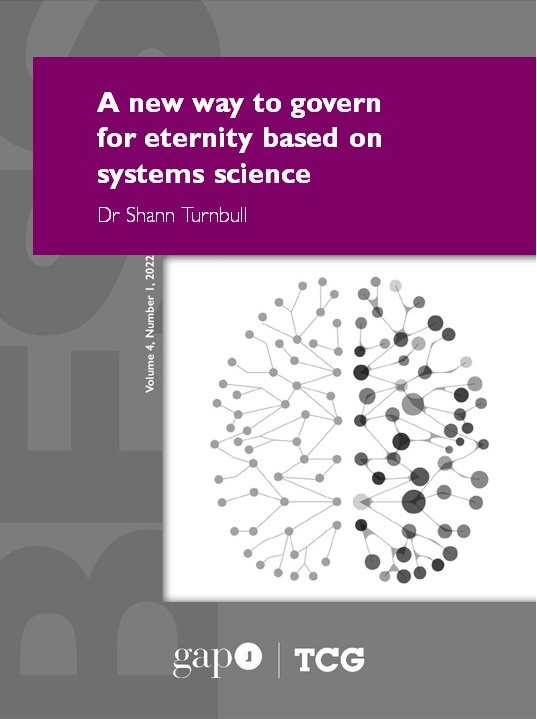A new way to govern for eternity based on systems science
DOI:
https://doi.org/10.54337/ojs.bess.v4i1.7297Nyckelord:
competitive, co-operative, Existential risks, Polycentric governance, Stakeholder benefits, TensegrityAbstract
This article is motivated by the CEO of the largest investor in the world wanting in 2018 “A new model for corporate governance” and that “companies must benefit all their stakeholders”. Firms that benefit all their stakeholders become what Ostrom described in her 2009 Nobel Prize speech as a “Common Pool Resource”. Ostrom identified how “polycentric governance” allowed competing interests, without markets or State, to self-govern life-sustaining resources without denying them for everyone. Key contributions of the article are to identify how: (a) To apply system science to extend and enhance the Ostrom self-governing design insights to corporate entities, (b) Polycentric governance releases and exploits the ability of individuals to possess contrary behaviour to self-regulation, improve risk management, adaption and innovation while enriching democracy denied in societies governed by hierarchies and markets, and (c) A self-funding tax incentive for shareholders to adopt polycentric governance that endows stakeholders with equity to privatise welfare with a universal taxable wellbeing income that funds the tax incentive. This promotes population reduction, less economic inequality and local ownership and control to counter environmental degradations and build sustainable circular bioregional economies for eternity. Polycentric governance is illustrated in sporting and civic organisations with business examples proving its competitiveness and resiliency. The size and costs of governments are reduced to further enrich democracy. Shareholder/stakeholder primacy is maintained for citizens electing politicians who introduce eternal universal benefits for humanity.

##submission.additionalFiles##
Publicerad
Nummer
Sektion
Licens
Copyright (c) 2022 Dr Shann Turnbull

Detta verk är licensierat under en Creative Commons Erkännande-IckeKommersiell-IngaBearbetningar 3.0 Internationell licens.
This journal provides immediate open access to its content on the principle that making research freely available to the public supports a greater global exchange of knowledge.
Articles published in BESS follow the license Creative Commons Attribution-NonCommercial-NoDerivs 3.0 Unported (CC BY-NC-ND 3.0)
Authors retain copyright and grant the journal right of first publication with the work simultaneously licensed under a Creative Commons Attribution License: Attribution - NonCommercial - NoDerivs (by-nc-nd).
Further information about Creative Commons




